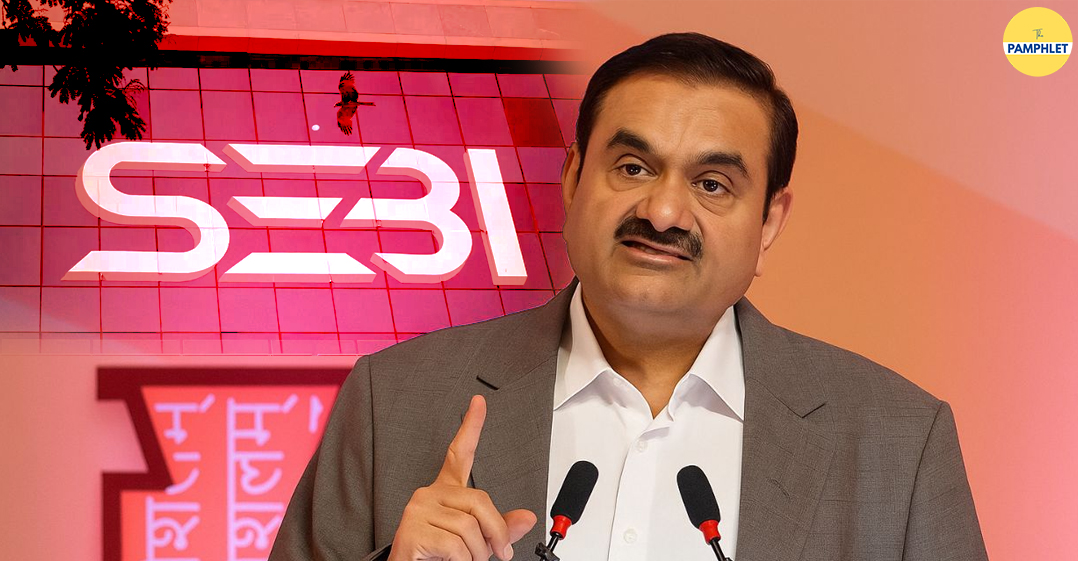After nearly two and a half years of meticulous investigation, the Securities and Exchange Board of India (SEBI) delivered its final verdict in the Adani–Hindenburg controversy. The regulator categorically cleared the Adani Group of all allegations of stock manipulation, insider trading, and fraudulent accounting, concluding one of the most politically and economically significant probes in recent memory.
In its detailed orders, SEBI examined transactions spanning 2018 to 2023, including fund transfers between Adani Ports, Adicorp Enterprises, Milestone Tradelinks, Rehvar Infrastructure, Adani Power, and Adani Enterprises. The regulator found that:
- Loan transactions under scrutiny were legitimate, interest-bearing, and fully repaid.
- These did not qualify as related-party transactions under the legal definitions in force during the period.
- No evidence of deliberate concealment or accounting fraud was detected.
- The Hindenburg Research allegations were declared baseless, with SEBI affirming that the Adani Group conducted lawful business dealings within the applicable regulatory framework.
Following the announcement, Adani Group stocks surged across exchanges, reflecting renewed investor confidence.
Chairman Gautam Adani described the verdict as “a testament to transparency and integrity,” emphasizing that the conglomerate had been vindicated after what he called a politically motivated smear campaign. This sense of relief and vindication was shared by many who had stood by the Adani Group during the turbulent times.
Over the years, opposition leaders—particularly Rahul Gandhi — continued to dismiss the findings. Even in 2024, he claimed that SEBI’s neutrality had been compromised under government pressure.
What did Hindenburg Claim?
The Adani–Hindenburg saga began on January 24, 2023, when New York–based short-seller Hindenburg Research published a scathing report accusing the Adani Group of executing “the largest corporate fraud in history.” The 100-page document set off a financial earthquake in India, wiping out billions in market capitalization within days and triggering a fierce political storm. However, the Adani Group, led by Chairman Gautam Adani, remained resilient in the face of these challenges.
Hindenburg’s core allegations revolved around three pillars:
- Stock Price Manipulation
- The report alleged that Adani Group used a network of offshore shell companies registered in tax havens to artificially inflate stock prices.
- These entities, supposedly linked to Adani family associates, were accused of routing funds back into Adani companies to maintain overvalued share prices.
- Accounting Irregularities and Fraudulent Practices
- The research firm claimed that Adani companies engaged in opaque and inflated accounting practices, masking debt and overstating revenues.
- According to Hindenburg, this allowed the conglomerate to project financial strength disproportionate to its actual fundamentals.
- Related-Party Transactions
- Hindenburg alleged that Adani entities diverted funds through obscure intermediaries, which functioned as undisclosed related parties.
- The report said these transactions blurred the lines between corporate governance and family ownership, raising red flags on money siphoning and conflict of interest.
The charges were devastating in their timing and precision. Adani Group was on the verge of a massive fundraise, and the report led to an immediate stock crash, eroding investor wealth and shaking global confidence in Indian markets.
More importantly, the political fallout was immediate. Opposition leaders — particularly Rahul Gandhi — seized upon the report as proof of alleged crony capitalism between Prime Minister Narendra Modi and Gautam Adani. The allegations were not just financial in nature; they became a symbol of the business–politics nexus that Gandhi claimed was undermining India’s institutions.
Rahul Gandhi’s Adani Obsession
If the Hindenburg report was the matchstick, Rahul Gandhi was the man who poured fuel on the fire. From the moment the short-seller’s allegations surfaced in January 2023, Gandhi turned the Adani controversy into his political spearhead — not to defend financial integrity, but to craft a narrative of crony capitalism aimed squarely at Prime Minister Narendra Modi. The report was specifically crafted to provide fuel for India’s political gambit.
Weaponizing Hindenburg for Political Gain
Rahul Gandhi relentlessly amplified the Hindenburg charges, both inside and outside Parliament. He linked every dip in Adani stocks to alleged corruption in the Modi government, framing it as proof of a “Modi–Adani nexus.”
- In fiery speeches, Gandhi accused SEBI of acting as a puppet regulator, shielding Adani instead of safeguarding investors.
- He went as far as targeting SEBI Chairperson Madhabi Puri Buch, alleging conflicts of interest and demanding her resignation — despite lacking hard evidence.
- His repeated calls for a Joint Parliamentary Committee (JPC) probe were less about fact-finding and more about creating a political spectacle.
A Calculated Narrative of Fear and Distrust
Gandhi’s rhetoric consistently painted the regulator, the government, and even India’s corporate sector as compromised. By doing so, he sought to erode public trust in Indian institutions and international confidence in India’s markets. The Adani issue became less about corporate governance and more about Rahul Gandhi’s personal vendetta against the Prime Minister.
Foreign Shadows and Questionable Links
The controversy took a darker turn when media reports in 2025 claimed that Israeli intelligence agency Mossad reports suggested that Gandhi relied on a foreign short-seller — one that openly profited from Adani’s stock crash — to fuel his domestic political attacks.
- While Hindenburg’s founder, Nate Anderson, dismissed these allegations as “lousy spy fiction,” the mere suggestion of such links cast Gandhi in an unflattering light.
- Critics accused him of outsourcing his politics to foreign players, willing to see Indian markets collapse if it meant weakening his political rival.
- This raised a fundamental question: was Rahul Gandhi’s crusade about accountability, or about importing foreign influence to destabilize India’s financial and political order?
The Bigger Picture
In hindsight, Rahul Gandhi’s relentless campaign against Adani now stands on shaky ground. SEBI’s exhaustive two-and-a-half-year probe not only dismantled the Hindenburg allegations but also exposed how Gandhi weaponized unverified foreign claims for short-term political mileage.
Rather than championing financial probity, Gandhi’s approach revealed a pattern of recklessness — damaging investor confidence, undermining regulatory credibility, and inviting foreign narratives into India’s domestic politics.
For many observers, it now looks less like a fight for transparency and more like a sinister plan of political sabotage.








